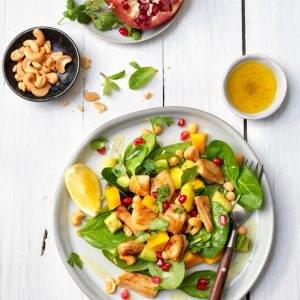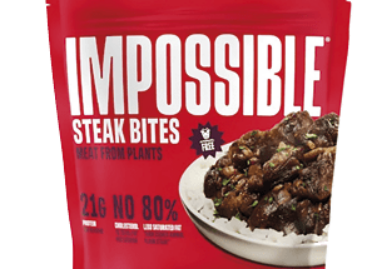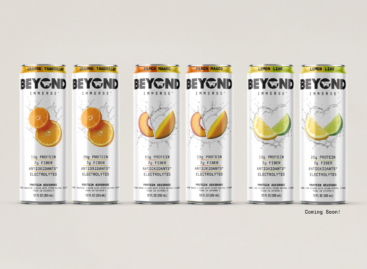Health-conscious innovations: What is behind the label?
Already before the pandemic consumers were expecting a rather pro-active attitude from those companies that make health-conscious and healthy food products, primarily in the domain of technological innovations. The COVID-19 outbreak strengthened this trend very much.
As shoppers want more and more detailed product information, plus personalised offers, the consumer health (CH) industry is growing at the speed of light. Ethical behaviour in making the products has also become important for consumers. They now also look behind the label, because they want to buy products that aren’t simply healthy, but also produced responsibly.
Prevent whatever you can
The demand for healthy food has also influenced the drink category: instead of added sugar or artificial sweeteners, consumers want products with healthy ingredients. In addition to lower sugar content, plant-based milk substitutes and drinks fortified with probiotics are also in demand. Especially among young adults, the popularity of low-alcohol and alcohol-free products is on the rise. Hard seltzer, flavoured beers and natural ingredients have become important in this segment recently.
Meat alternatives
According to a survey conducted by FMCG Gurus this spring, the three main things consumers focused on after the breakout of the pandemic were eating more fruits and vegetables, consuming less sugar and increasing their protein intake. Plant-based products, e.g. those made of pulses – which are excellent sources of protein but can be produced much more sustainably than meat – are gaining ground. Perhaps the best-known products in this category are Burger King’s Impossible Foods and Beyond Meat.
Algae bagel and cricket spaghetti
Not only meat can be substituted: the market is full of vegan, vegetarian, plant-based, gluten-free, sugar-free and other free-from products. One Brands One Plant came out with a plant-based protein bar made of peas, rice and almond; the product is GMO-, milk- and gluten-free. Nescafé rolled out a plant-based instant white coffee called Nescafé Gold. There is great consumer interest in flour alternatives too. Nordic Seaweed ApS put bagels and pasta made of algae on the market. What is more, Pappardelle developed a spaghetti product that is from 100-percent cricket flour and one portion is enough for a person’s recommended daily protein, iron and calcium intake.
Tests for every occasion
It goes without saying that new services and technologies are also tied to healthy innovations. London-based platform Feedr brings together companies such as Etsy, Airbnb, DHL and PwC with local food producers, with the purpose of serving healthy meals at the workplace. Allergy Amulet is a portable food allergen sensor and Tufts has also developed a sensor that tests food for certain ingredients. Nutrino created a platform for consumers suffering from diabetes, which collects physiological data and with the help of machine learning and artificial intelligence prepares personalised diets for the user. //
Boosting the immune system with the latest multivitamins

Gabriella Szomolányi
head of marketing
GSK
Multivitamin sales have soared during the COVID-19 pandemic. Centrum multivitamin has recently developed special products for the younger generations, which suit their lifestyles more. Children can have the wide spectrum gummy candy multivitamins, while young adults can choose the vitamin combination that strengthens energising processes and boosts the immune system.
Since the majority of vitamins are dietary supplements, they can also be purchased online. Gabriella Szomolányi, head of marketing at GSK told: during the pandemic they made sure their products can be found and bought more easily online too. //
Expanding product selection for protecting shoppers from the virus

Gyöngyvér Mezei
category manager
Rossmann Magyarország
This year vitamin and immune system booster sales multiplied, and the peak period was March. We learned from Gyöngyvér Mezei, category manager of Rossmann Magyarország Kft. that they are offering an even bigger selection of these products from the autumn, so that consumers can better protect themselves from the virus. The new products on the shelves of Rossmann drugstores either contain more active agents or new, innovative components, e.g. those with a virus killer effect. //
Nestlé: Innovating since day one
Nestlé’s innovation work started with the birth of the company 150 years ago. Their business philosophy is still based on innovation work that relies on scientific research and on reacting to new dietary trends. Last year Nestlé put the plant-based Garden Gourmet product range on the market, which will hit the Hungarian market in January. The five new meat alternatives will be available from the company’s reseller partners.

//
Related news
40 secure jobs, sustainable solutions – new BURGER KING® in Csepel
🎧 Hallgasd a cikket: Lejátszás Szünet Folytatás Leállítás Nyelv: Auto…
Read more >Impossible Foods featured on the “Best in Business” list again this year
🎧 Hallgasd a cikket: Lejátszás Szünet Folytatás Leállítás Nyelv: Auto…
Read more >Beyond Meat expands protein drinks after promising test launch
🎧 Hallgasd a cikket: Lejátszás Szünet Folytatás Leállítás Nyelv: Auto…
Read more >Related news
How does the forint exchange rate affect consumer prices?
🎧 Hallgasd a cikket: Lejátszás Szünet Folytatás Leállítás Nyelv: Auto…
Read more >HELL CITY has arrived, led by Michele Morrone
🎧 Hallgasd a cikket: Lejátszás Szünet Folytatás Leállítás Nyelv: Auto…
Read more >Two million people have already voted, so 57 million forints will be given to locals in 125 settlements, courtesy of Tesco
🎧 Hallgasd a cikket: Lejátszás Szünet Folytatás Leállítás Nyelv: Auto…
Read more >









